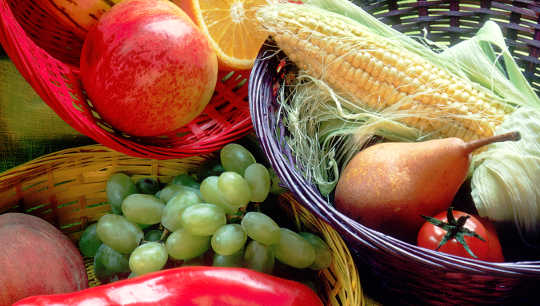
The idea that healthy foods are universally more expensive can lead consumers to make choices that aren’t always necessary, a new study suggests.
Because organic ingredients and gluten-free foods are often priced higher, consumers may skip buying certain foods because of a misplaced belief that similar pricing applies to other products.
“Across five studies, we find that consumers do subscribe to a general lay theory that healthy = expensive despite the fact that this relationship is unlikely to be true in all product categories and contexts,” says Kelly Haws, associate professor of marketing at Vanderbilt University. “As a result, this lay theory is over-applied beyond the categories where it is objectively true.”
The findings of a pair of studies show that when an item is more expensive, consumers infer that it is healthier based on price alone. Similarly, consumers assume that foods identified as being healthier will cost more.
Further, consumers will often fall back on prices when there are not clear differences in the nutritional benefits of various options. For example, study participants were asked to choose between two items for a friend who was trying to eat healthy. When a “Roasted Chicken Wrap” was priced at $8.95 versus a “Chicken Balsamic Wrap” for $6.95 at the same (fictional) restaurant, people choose roasted over balsamic. But when the prices were flipped, so were the choices.
The healthy = expensive theory also leads consumers to believe that a particular “healthy” ingredient is more important when an item containing it has a higher price.
Finally, consumers held lower-priced foods to a tougher standard of evidence for any health claims being made. Participants were told that the average price of a protein bar was $2. When a protein bar was priced at 99 cents, consumers examined an average of three product reviews. But when the cost of the bar rose to $4, they looked at an average of two product reviews.
Taken together, these studies indicate that the “healthy = expensive” intuition acts as a bias in shaping how consumers process information about health and price.
“If one is operating with an unlimited budget while trying to cook and serve healthy meals, then perhaps this isn’t a problem,” the researchers write in the study, which will be published in the Journal of Consumer Research.
“However, anyone trying to manage their food budgets and feel good about the healthiness of their family meals may well pay too much for their nutrition. This can occur despite ready availability of both pricing and nutritional information, due to the busy and often hurried consumer sacrificing health while attempting to balance budgets.”
About the Authors
Other coauthors of the study are from Ohio State University and the University of Georgia.
Source: Vanderbilt University
Related Books:
at InnerSelf Market and Amazon

























